Cote d'Ivoire
The Connessa activities are being conducted on two distinct intervention sites located in two agroecological zones
Abidjan
This is a peri-urban site located in the Southern part of CI, close to Abidjan, in the forest zone. The site belongs to a training school of agriculture, named “Tshanfeto” (meaning “Stand up!” www.tshanfeto.com/). In order to overcome soil degradation due to continuous cropping and/or over-utilization on this site, soils are continually amended with chicken waste available in the neighbouring farmyard.
Two types of amendment are continually applied for 16 years: (i) surface application followed by ploughing and (ii) ploughing in chicken waste at 20 cm depth. Specifically vegetables (cabbage, lettuce, tomato, hot pepper, aubergine) and maize are cropped on this site. So far, no research activity regarding the impact of these amendment systems on soil fertility parameters nor on soil biology have been conducted at the site of Tshanfeto. Therefore, the Connessa team is exploring these aspects with emphasize on SOM and P, microbial activity and diversity of earthworms as well. In addition, the responsiveness of cropped plants will be dealt with. Following a prospection mission at the site in late April 2015, the first soil and animal (chicken and rabbit) wastes sampling was carried out early June 2015. On 10 June 2015, these materials were taken to Dakar in an IRD laboratory for characterization (chemically and biologically) by our PhD student (Koffi Bernard) who is benefiting from a training funded by CaSA (Soil carbon for a sustainable agriculture in Africa), another network we are part of. The following activities at this site consist in crop growth measurements during the next cropping cycles (there are 3 to 4 cropping cycles per year at this site)
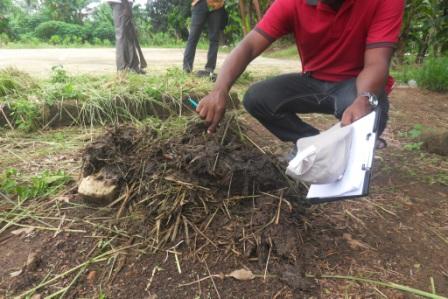
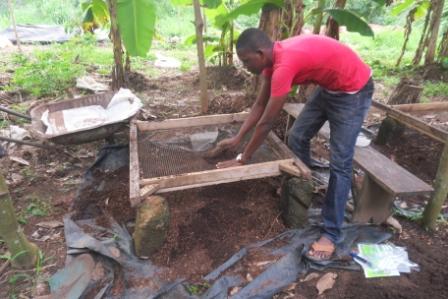
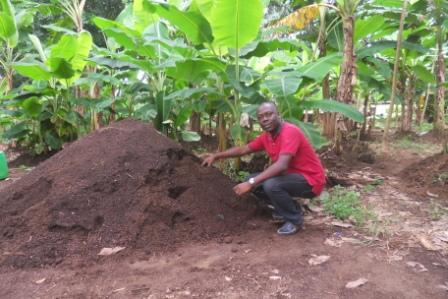

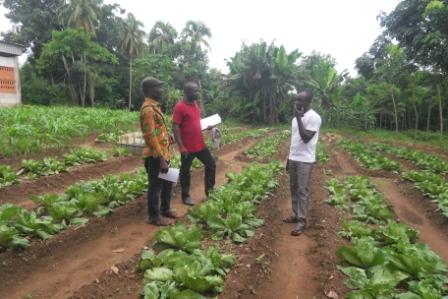

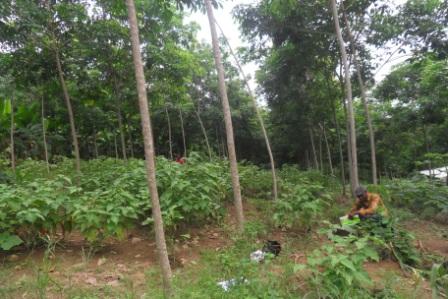
Yamoussoukro
The site was established since 2011 near Yamoussoukro, and is dedicated to flooded rice production. It belongs to a farmer's organization named “Je-Souriz”. This site is located in central Côte d’Ivoire where soils are inherently low fertile leading to major constraints in crop production. Their sandy status and the low-activity clays they contain are the main factors driving this deficiency. There is a great need to improve SOM levels in this region.
Before we cooperated with this organization, two treatments were available at this site: - soil amended with cow dung and without any pesticide, -soil amended with chemical fertilizer (NPK). For impact assessment, the Connessa team added plots as control (no application). Following a prospection mission at the site in Mid-March 2015, the first soil and animal (cow) waste sampling was done late May 2015. The samples were taken to Dakar together with those from Tshanfeto (in the South) for the same characterizations. The next activities at this site consist in crop growth measurements which will allow nutrient use efficiency calculations.
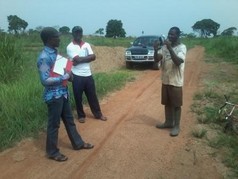

Rice cropping site. Persons on the picture, from left to right: Dr Abobi (project member), M. Kouablan Dongo (Director of Je-Sou-Riz) and M. Kouakou Divid (Lead of the farmer organization)
